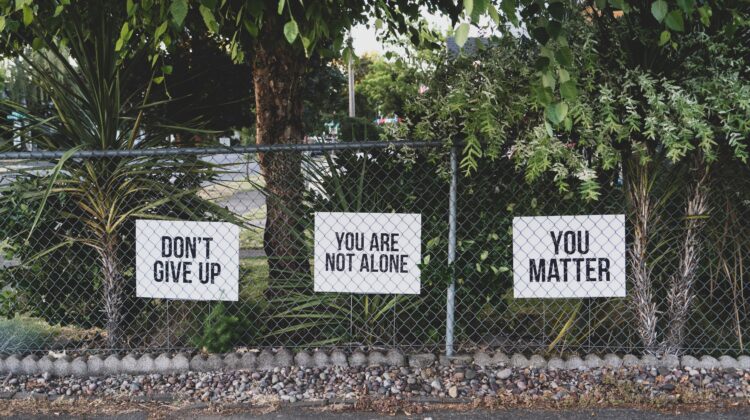

It turns out that I am not the center of everyone’s universe.
I’ve seen others exhibit this behavior and I most certainly do it. Many times, I have gone through things that were traumatic and painful. Coming out on the other side of these incidents, I can see how it impacted others too. It turns out it wasn’t just me and what happened to me. This is especially true with my depression and my low times.
When I am feeling depressed, I am sure all eyes are on me.
This is when my concealed depression kicks in. I compensate for my depression by making sure I project a positive, can-do attitude. Being seen as anything less than marvelous feels like I am failing. And then there is the guilt I feel for not feeling better and having to put on my high-functioning depression act. I use concealed depression to compensate for how I perceive others are viewing me. And did I mention that this is exhausting?
In my mind, EVERYONE is looking at me.
In these moments, I believe it is all about me. If only everyone wasn’t looking at me, wondering about me, judging me, then things would be better. My depression loves it when I think this way. It has developed 10 unhelpful thinking habits that it can choose from to make me feel inadequate.
I take one unhelpful thinking idea, like all or nothing thinking, and my mind begins to race.
I see that everyone is thinking about me and what I am doing. This is what depression wants me to do. It has strategically set me up for this. It works behind the scenes to make sure that I feel like the world revolves around me. And then it finds ways for me to crash dramatically, as I relearn the truth that it is not all about me.
READ MORE: Up against the wall – 10 unhelpful thinking styles
All people have lives and have things they are dealing with.
Everyone has parts of their lives that are going well, and parts they are working on. The degrees for each person are different. Many are near the middle, leading a somewhat balanced life. This is where I am working to be.
However, some people’s lives are lived at extremes.
They only know hardship, or everything they touch turns to gold. Depression wants me to live at the hardship end of the scale. Circling the drain, traveling into the abyss, feeling stuck up against the wall, all these are ideas I get from my depression.
Since my time on 5 East, I have learned that I have a choice about my attitude towards events.
And while this is not always easy to do, I feel I am getting better at spotting those times when I have given up control of my life to depression. My depression relishes the times when I feel helpless and out of control. It shows up as the hero, ready to rescue me from whatever is happening.
But the reality is, it wants me up against the wall, feeling nothing.
Depression is happiest when I am believing it is all about me. It revels in my thoughts that I am alone, that no one has ever gone through anything like this before. I am the only one who feels that everyone is thinking about me and looking at me and wondering about me.
The truth is, I am not that important.
Everyone is focused on their lives. And today, right now, I may impact them in some way, but in the next moment, they are back to worrying about their mother’s health, their child’s soccer game, or an upcoming event.
Everyone has more important things to do than to spend their time looking at me.
So once again, I have the chance to choose how I will react to these feelings. I can embrace them as depression hopes, or I can choose to think differently. My attitude is the one and the only thing I have total control over.
Yet so much of the time, I give that power away.
Yesterday, I had an appointment with my medicine management psychiatrist. We talked about depression which was no surprise since she has been prescribing the 300 mg of Wellbutrin, which I take daily to ward off my depression.
She reminded me how depression is the master of getting people to relinquish their ability to feel in control.
One of the hallmarks of major depressive disorder is isolation and the feeling of being completely alone. But even worse, it is the feeling that we are not in control. I know I am guilty of this, of feeling helpless and powerless to control what is happening.
Yet I can always adjust my attitude towards whatever depression is focused on, and I can decide what my attitude will be towards the event.
This is not always easy, and I have spent the past 39 months learning how to do this more consistently. And one of the benefits of this is that I don’t always assume that it’s all about me. This has been an eye-opener. It has also changed the way I communicate.
Today, I am more likely to listen and ask a follow-up question. In the past, I would tolerate the person’s response, but all I really wanted to do was to get them to stop talking so I could say what I wanted to say. I am sometimes still guilty of drive-by conversations. I make these one-sided conversations all about me and what I need to say. In the end, I am still working on getting out from under depression’s lie that it is all about me.







Leave a Reply